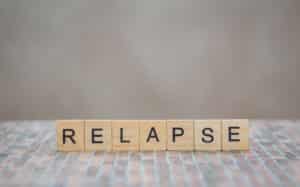What Is a Relapse?
Relapse is a return to drug use after a period of abstinence. The relapse rates for substance abuse are high, with 40-60% of people relapsing within the first year of abstinence. While relapse is not ideal in recovery, it is a common occurrence that is often to be expected.
There are many reasons why people relapse. Some common triggers include:
- Stress
- Boredom
- Depression
- Temptation
- Anxiety
Relapse Prevention Strategies
There are many relapse prevention strategies that can be employed to reduce the risk of relapse. Some common strategies include:
- Exercising regularly
- Eating a healthy diet
- Developing a support network
- Attending therapy or counseling sessions
- Identifying trigger situations and avoiding them
- Practicing stress management and relaxation techniques
If you or someone you know is struggling with substance abuse, it is essential to seek professional help. A substance abuse relapse prevention plan can be an effective tool in recovery, but it is crucial to get started on the right foot with the help of a professional. With the right support, a history of relapse can be prevented and recovery can be maintained.
What Is a Relapse Prevention Plan?

Relapse prevention plans are often developed with the help of a therapist or counselor. During treatment, individuals will work with their therapist to identify triggers and develop coping mechanisms.
Once treatment is completed, it is important to continue working on the relapse prevention plan in order to avoid relapse.
What Are the Benefits of a Relapse Prevention Plan?
There are many benefits of having a relapse prevention plan. Relapse prevention plans can:
- Help individuals identify early warning signs of relapse
- Teach individuals healthy coping mechanisms
- Provide support and accountability
- Help individuals develop a network of supportive people
How to Create a Relapse Prevention Plan
There is no one-size-fits-all relapse prevention plan. The best way to create a relapse prevention plan is to work with a therapist or counselor.
Some key elements of a relapse prevention plan may include:
- Identifying high-risk situations
- Developing coping mechanisms
- Building a support network
- Staying active in treatment or recovery groups
- Practicing self-care
A relapse prevention plan should be tailored to the individual and their unique needs. It is important to remember that relapse is not a failure, but rather a part of the recovery process. If you or someone you know is struggling with relapse, please reach out for help.
What Are Steps to Creating a Relapse Prevention Plan?
A relapse prevention plan can be very helpful in relapse prevention. But what are the steps to creating one? Here they are:
Determine Your Personal Relapse Triggers
These can be people, places, things, or situations that make you want to use drugs or alcohol.
Avoid Your Triggers if Possible
If you can’t avoid them, have a plan in place for how to deal with them ahead of time.
Build a Support Network
This can include sober friends and family members who can help you stay on track.
Stay Active in Treatment or Recovery Groups
This will help you stay connected to others who are going through the same thing as you and can offer support and understanding.
Practice Self-Care
This includes things like eating healthy, getting enough sleep, and exercising regularly. Taking care of yourself will help you feel better and be less likely to relapse.
Be Honest With Yourself and Your Loved Ones About Your Recovery
This can be a difficult thing to do, but it’s important to be open and honest about where you are in your journey.
Seek Professional Help if You Feel Like You’re Struggling
If you find that you’re having a hard time staying sober, reach out to a therapist or counselor who can help you get back on track.
Plan for Setbacks
Relapses happen, but they don’t have to mean the end of your recovery. If you do relapse, talk to your support system and make a plan to get back on track.
Celebrate Your Successes
Recovery is a journey, and it’s important to celebrate each milestone along the way. This will help you stay motivated and focused on your goals.
Live a Healthy Lifestyle
Eating healthily, exercising, and getting enough sleep are all important factors in relapse prevention. By taking care of your body, you’ll be better able to resist relapse triggers
Stay Connected to Your Support System
Your friends and family can be a great source of support during recovery. Make sure to stay in touch with them and lean on them when you need to.
Seek Out New Hobbies and Interests
Developing new hobbies and interests can help you stay sober by giving you something to focus on other than drugs or alcohol.
Be Patient With Yourself
Recovery is a process, and it takes time to achieve lasting sobriety. Be patient with yourself and don’t get discouraged if you have a relapse. Just pick yourself up and start again.
Get Professional Help
If you’re struggling to overcome addiction, consider getting professional help. A therapist or counselor can provide you with valuable insights and tools to help you stay sober.
Seek Out a 12-Step Program
12-step programs like Alcoholics Anonymous can be very helpful in recovery. If you’re struggling to stay sober, consider attending meetings and working the steps.
Avoid High-Risk Situations
There are certain situations that are more likely to lead to relapse than others. Make sure to avoid these situations as much as possible.
Get Help if You Need It
If you find that you can’t seem to avoid a relapse on your own, don’t be afraid to seek professional help. This can be in the form of therapy, medication, or a combination of both.
A relapse prevention plan is important, but so is living a happy and healthy life in recovery. Make sure to focus on other aspects of your life as well, such as your relationships, hobbies, and career. This will help you stay motivated and focused on your goals.
Relapse prevention is an ongoing process that takes time and effort. But it’s worth it because it can help you stay sober and live a happy and fulfilling life. If you’re struggling with relapse prevention, don’t hesitate to reach out for help. There are many resources available to you, and you don’t have to go through this alone.
Relapse prevention is an important part of recovering from substance abuse. By following a relapse prevention plan, you can increase your chances of staying sober and living a healthy and happy life.
Relapse prevention strategies may vary from person to person, but there are some common techniques that can be helpful for everyone. Some relapse prevention strategies include attending support groups, seeing a therapist, and making lifestyle changes.
Have an Emergency Plan in Place
If you do find yourself in a relapse situation, it’s important to have a plan in place to help you get through it. This may include having a sponsor you can call, attending more meetings, or getting additional therapy.
What Are the Stages of Relapse?

Emotional relapse is when you start to feel like you’re not coping with stress well, you’re isolating yourself from others, and you’re feeling negative emotions like anger, sadness, and anxiety.
A mental relapse occurs when you start to think about using drugs or alcohol again. You may start to make plans to get and use drugs, and you may start to rationalize your drug use.
Physical relapse happens when you actually start using drugs or alcohol again. This is the most dangerous stage of relapse, as it can be very difficult to stop once you’ve started using again.
Relapse Prevention Models
There are several relapse prevention models, but they all have three common elements: education about relapse, identifying high-risk situations, and developing coping strategies
Education About Relapse
In order to prevent relapse, it’s important to understand what relapse is and how it happens. This can help you to identify the early warning signs of relapse and take action to prevent it.
Building a Support Network
Relapse prevention is often more successful when you have a strong support network in place. This may include family, friends, therapists, or a recovery group. These people can provide emotional support and help you stay on track with your recovery goals.
If you or someone you know is struggling with substance abuse, it’s important to get help as soon as possible. Relapse prevention is an important part of recovery and can make a big difference in the long-term success of treatment. With the right support, it is possible to overcome addiction and live a healthy, relapse-free life.
Identifying High-Risk Situations
It’s also important to identify situations that may trigger a relapse. These triggers can be different for everyone but may include things like being around people who use drugs or alcohol, being in places where drugs are used or feeling stressed or anxious.
Developing Coping Strategies
Once you know what triggers a relapse, you can develop coping strategies to deal with those situations. This may involve things like avoiding trigger situations, practicing relaxation techniques, or talking to someone you trust about your feelings.
Substance Abuse Relapse Prevention Is Available at Casco Bay
One of the biggest ways to avoid a relapse is through our therapy programs that are available to the patients in outpatient care. Cognitive behavioral therapy and dialectical behavior therapy are just a few options. These programs assist in preventing relapse and rebuilding life.
Anywhere ranging from 50% to 90% of individuals struggle with addiction relapse after the completion of a recovery program. Therefore, a recovery physician is needed to prepare patients for life in treatment and post-treatment. We will go the extra mile to help you. Contact Casco Bay Recovery today.
References:
https://nida.nih.gov/publications/drugs-brains-behavior-science-addiction/treatment-recovery
https://pubs.niaaa.nih.gov/publications/arh23-2/151-160.pdf
https://www.ncbi.nlm.nih.gov/pmc/articles/PMC4553654/

